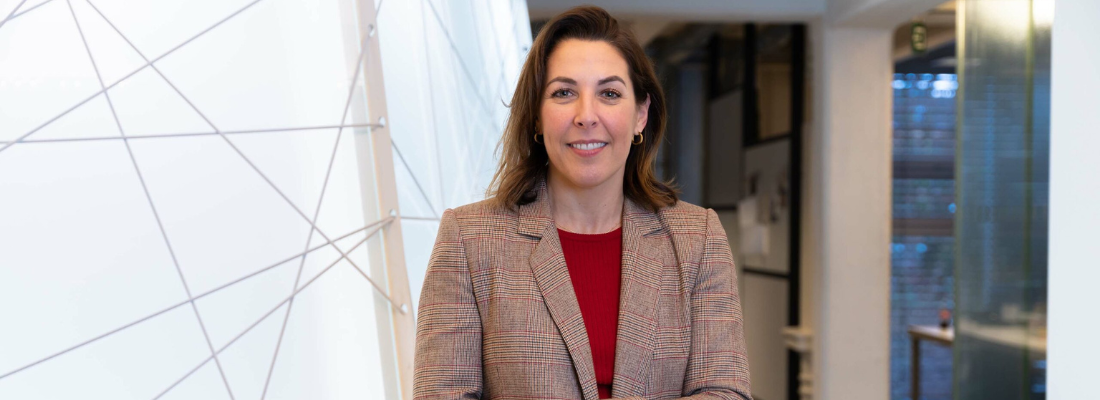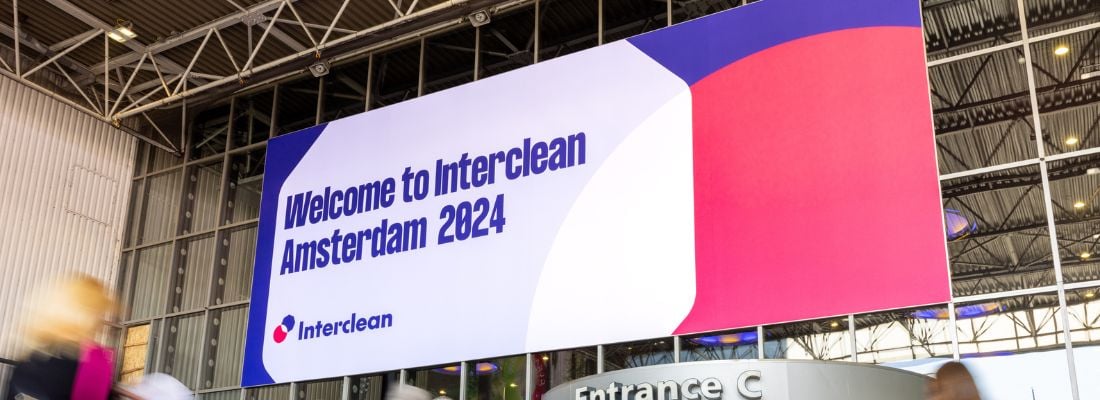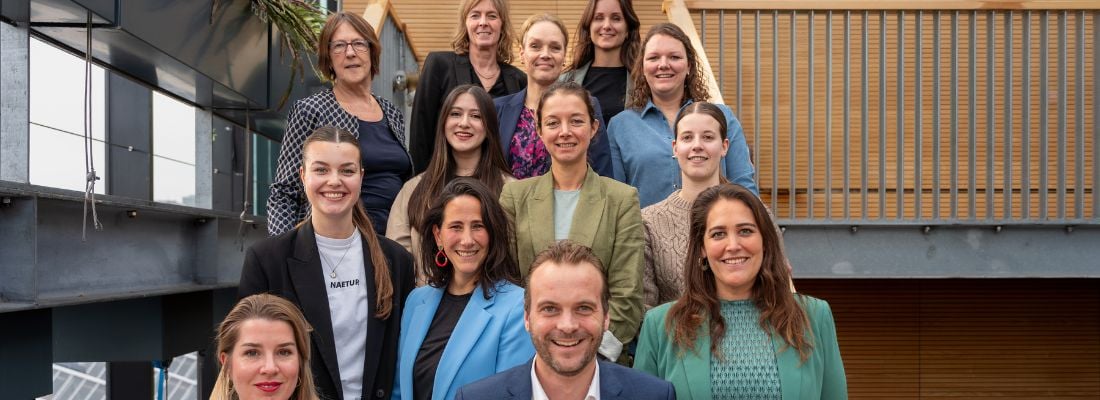Facility Management in the spotlight – exploring the way forward
For our recent Ask the Experts interview we caught up with the highly informative Lara Paemen, the Managing Director of the International Facility Management Association Europe, Middle East and Africa, based in Belgium.
Lara is an expert in the field of facility management and gave Interclean an exclusive look at the challenges, and opportunities in this dynamic sector. She shared her take on the important role that facility managers play in organisations.
What is the role of facility managers?
Facility management is so much more than keeping a building clean and neat. Facility managers support people working in organisations – it’s all people driven. It's about creating healthy, clean, attractive, and safe environments, where people can live, work, and relax. “Facility managers have a direct impact on wellbeing – be that of your workforce, your visitors, your customers or the planet,” says Lara.
Changes in perceptions around facility management
According to Lara the Covid-19 pandemic thrust the cleaning and hygiene industry into the limelight. It made people realise the importance of those responsible for hygiene, wellbeing, and cleaning. This has had a positive impact on the way in which the industry is regarded. Now cleaners and facility managers are given the respect and appreciation they deserve.
“Facility management has gained in importance because we have a direct impact on health and happiness. If we want to be recognised and valued for what we do for our industry, we must take advantage of the fact that more people know what facility management is, and embrace this momentum,” she explains.
Facility managers are facing challenges head-on
As with most other sectors in the industry, facility management is also facing challenges. Not least of which is finding and retaining skilled people in the profession. This is where Lara’s work at the International Facility Management Association has such an important role to play in education and training. “Our industry is constantly evolving. And if we really want to play a significant role, we need to continue to educate ourselves and stay on top of the latest trends and technology,” maintains Lara.
She also mentions the increasing move towards digitalisation of the industry, which requires training staff in new skill sets. The introduction of Artificial Intelligence, smart buildings, robots and cobotics has changed the landscape of our industry forever.
An increased focus on recruitment in the industry
When it comes to finding skilled professionals it’s worth looking at what is fuelling this recruitment issue.
According to Lara it’s a general lack of skilled professionals – a shortage on the labour market. However, for her one of the benefits of facility management is that you can study it and make it a career of choice.
“As a student you can join a Masters or Bachelor programme and then grow into the industry. An advantage is that you can enter our industry at any stage of your career. You can reskill or upskill yourself very easily to work in different domains in our industry,” says Lara.
“We must start looking at how we can encourage people to stay in the industry. The average age of people working as facility managers is relatively old compared to other industries. That means that there's not only a danger that people will obviously leave the labour market because they're entering retirement, but also that we're not attracting enough young people to our industry. Our industry together with associations like the IFMA need to play a role in having this social dialogue on a local level to try to get more facility management education in place,” explains Lara.
How can facility management support wellbeing?
We asked Lara what wellbeing means for a facility manager and the staff. What is employee wellbeing?
“When I talk about facility managers, I try to avoid the word building because from my perspective, a facility manager is there to support the people in the role that they need to play on a daily basis. So, it's all people driven. The facility manager has an enormous impact on their wellbeing and potential to boost it. It's about creating safe, healthy environments, and also providing people with, for example, healthy food,” comments Lara.
Wellbeing also extends to looking after your cleaning teams. “It’s obviously essential that they work with safe products, that they work under the best conditions, and have flexibility in their working hours,” she explains.
How facility managers can play an important role in sustainability
Lara is excited about the opportunity for facility managers to have an enormous impact on sustainability within their organisations. However, finding the right balance between investing in sustainable solutions, and the financial aspect related to that, is truly a challenge. “The challenge we have as facility managers is to find the right balance in where to invest and what to invest, to not only gain benefit in the short term, but in the long term too,” says Lara.
Going forward companies will be required to report on their ESG activities to achieve specified ESG ratings and targets. This may already be part of large organisation’s policies, but small and medium businesses may well take longer to balance the trade-off between sustainability and financial investment. That’s where facility managers who have been trained in how to successfully implement sustainability strategies in a viable financial manner will be extremely valuable to any corporation.
How can facility managers embrace the new wave of digitalisation?
It’s inevitable that the cleaning and hygiene industry incorporate smart technology and the associated data into their operations. Facility managers need to be on top of these advances and find ways to optimise them for their unique requirements.
“We are seeing the emergence of smarter buildings. Many organisations are introducing some type of sensor in their buildings. Whether it's to identify how many people are in the building or how many of the restrooms are used, or to organise cleaning schedules or undertake preventive maintenance – it’s starting to get more integrated into our facilities. However, we can spend millions of Euros on installing sensors, but it's what you do with them that is important. It's really identifying: what data do I need and how am I going to capture that data and use it to optimise my operations?” explains Lara.
Tips for using smart building solutions and digitalisation to increase productivity
It can be quite difficult to know how and where to start with a smart building and implementing data from the information received.
“First of all, you need to identify what you want to see changed. Do you want to reduce your energy consumption or achieve increased sustainability or boost your cost-cutting efforts? Is there an ESG policy within your organisation? It's about identifying your objectives and a strategy that drives that implementation,” explains Lara.
Secondly, what data do you need to capture? Is it the number of people coming into the building? Is it the number of times your restrooms or meeting rooms are being used? Is it the heating? When it comes to smart buildings, so many things can be measured these days.
Then eventually, how can you translate the information and data that you gather from these sensors into an action plan? Because if it's about, for example, reducing the times that you clean in certain areas or reducing the maintenance frequencies – those items are tangible. Those are KPIs that you can introduce.
People and machines – working together to boost efficiency, achieve cost effectiveness and reach sustainability goals
Facility managers need to be educated on the potential of using smart technology. Although, some might be resistant, fearing the machines will replace employees.
Lara reassures us there will always be a need for people to work in our industry. “We cannot digitalise everything. We will always need people to manage certain things – for instance to interpret the data that has been gathered. But the purely repetitive or, let's say, simplest tasks will disappear,” she explains.
With regard to maintenance, there are quite a number of aspects that are being automated. Cleaning robots are a good example. The task of cleaning can readily be done by certain types of robots. But it's in the management of all that where you still need human interaction. The field of cobotics looks very promising. “I like the interaction between the robots and the people working in the cleaning industry. That's where I think you gain the most out of these digitalised or automated activities,” maintains Lara.
The role of women in facilities management
Lara is extremely passionate about supporting women in facility management leadership roles. She is very vocal about encouraging the industry to give women in the field the opportunity to inspire, educate and innovate. “Now, when I am invited for a panel discussion or as a speaker, I always look at the programme first and I challenge the conference organisers by saying, ‘why don't you get more women on stage?’” says Lara. “It’s not that they're not out there. You just need to ask them, find them. We must all play our part in this,” suggests Lara.
A last word and looking ahead
For Lara there are currently five main topics in the industry:
- AI, digitalisation, automation, smart tech and cybersecurity
- Creating more agile and flexible work environments
- Recruitment of skilled people into the facility management industry
- Wellbeing
- ESG, sustainability and social responsibility
We look forward to following these top trends as Interclean continues to bring you the latest on the future of the cleaning and hygiene industry.
Share your stories with us!
Do you have an innovation or interesting news you would like to share with the professional cleaning and hygiene industry? The Interclean website and social media channels are a great platform to showcase your stories!
Please contact our press department interclean@rai.nl.
Are you an Interclean exhibitor?
Make sure you add your latest press releases to your Company Profile in the Exhibitor Portal for free exposure.
Receive the best newsletter on cleaning & hygiene - straight to your inbox!
We promise never to send you spam and you can unsubscribe at any time!





